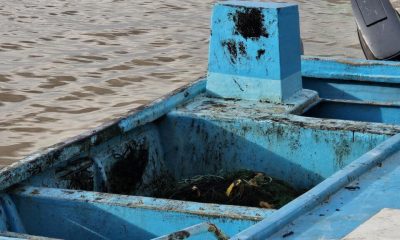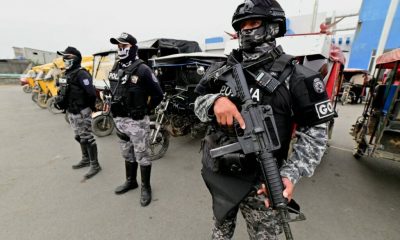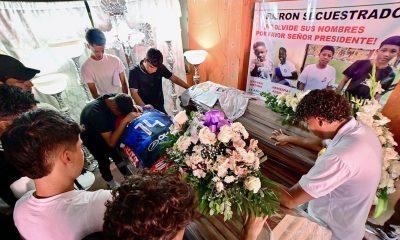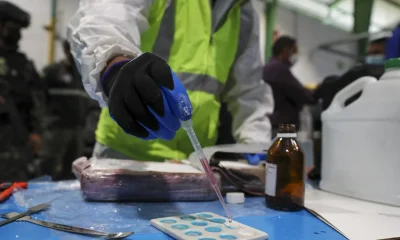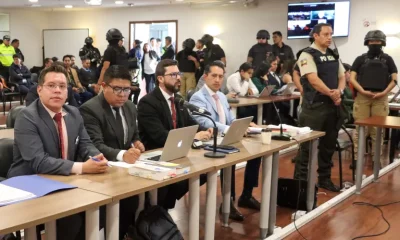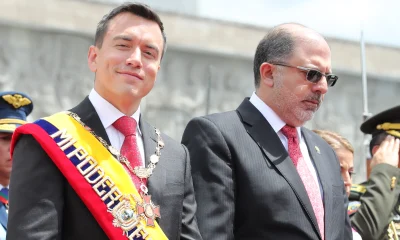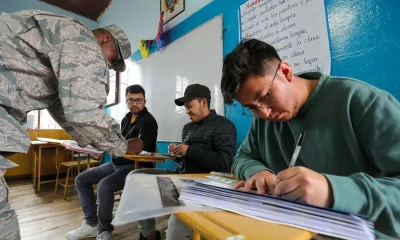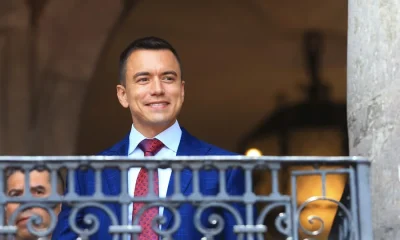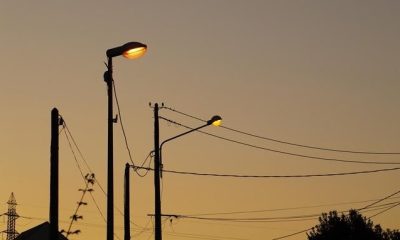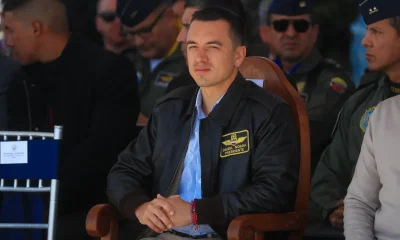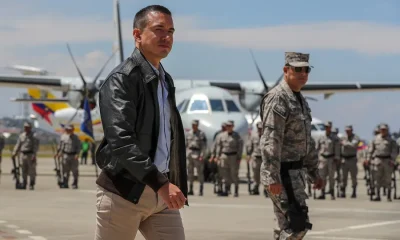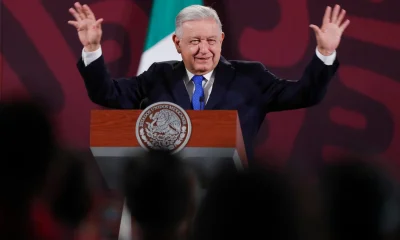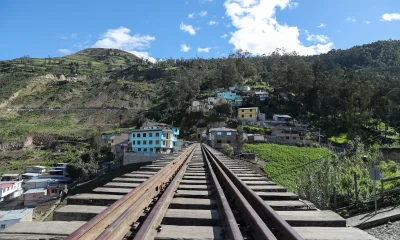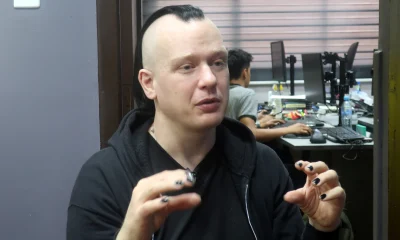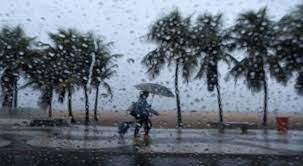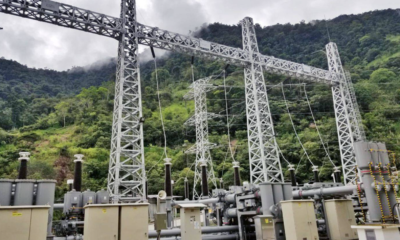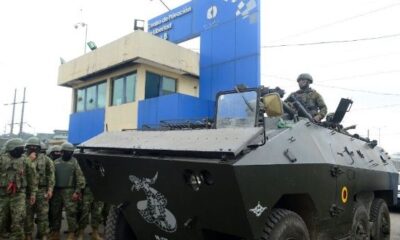International
Murder of presidential candidate Fernando Villavicencio shocks Ecuador
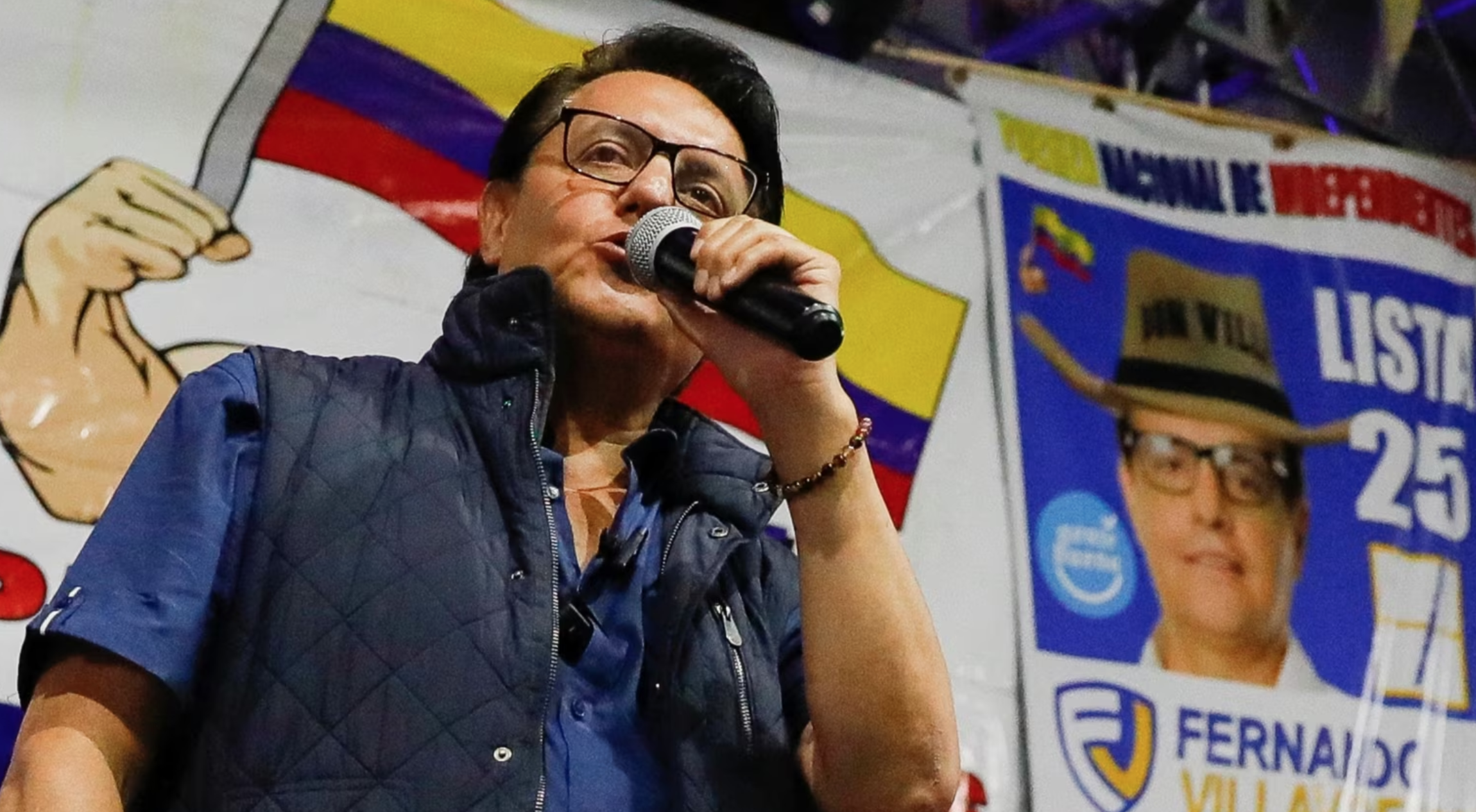
August 10|
Ecuador’s presidential candidate Fernando Villavicencio, a champion of the anti-corruption fight and known for his statements against criminal gangs and drug trafficking, was killed on Wednesday in Quito in a shooting attack outside a political rally, just over a week before the general elections and amid a wave of violence affecting various parts of the South American country.
Villavicencio died in a clinic 100 meters from the site of the attack, while police carried out a controlled explosion of a grenade that had been thrown in front of the rally site.
After the death was confirmed, presidential candidate Otto Sonnenholzner, of the Actuemos coalition, called on the other candidates to stop campaigning and come together to form a single force in the fight against crime.
President Guillermo Lasso, who called the murder a “political crime” and said it was intended to “sabotage the electoral process”, confirmed that the election date would be kept, albeit with additional security measures including a military deployment.
He also decreed three days of national mourning for the death of Villavicencio.
The Attorney General’s Office informed near midnight on the social network X, formerly Twitter, that six people have been arrested in connection with Villavicencio’s murder. Earlier it had specified that a suspect in the attack was wounded during the exchange of bullets with security personnel, was apprehended and taken badly wounded to the Flagrancy Unit in Quito, where he died of his wounds.
The criminal organization that calls itself “Los Lobos” published a statement on the social network X — formerly known as Twitter — claiming responsibility for the murder of Fernando Villavicencio and threatening that “it will happen again when the corrupt don’t keep their word.
Villavicencio was one of eight registered candidates for the August 20 presidential election. The 59-year-old politician was not among the favorites, with a meager 10% of the preferences, although he was a recognized figure for having denounced in the past several cases of alleged government corruption.
He was married to Verónica Sarauz and leaves five children.
In recent days, the presidential hopeful had publicly denounced that the leader of a local criminal group linked to Mexico’s Sinaloa cartel had threatened him, although so far no Ecuadorian authorities have pointed to any specific criminal organization. Villavicencio had also alleged links between politicians and drug traffickers.
In the last video in which he is seen alive, he is seen leaving the school grounds where the political rally was held surrounded by police, who help him into a vehicle. Before closing the door, a series of gunshots and desperate shouts from supporters can be heard.
Following the attack, Ecuadorian authorities did not disclose the possible motive behind the attack. Patricio Zuquilanda, an advisor to the candidate’s campaign, told The Associated Press that Villavicencio had received two death threats, although he did not give further details.
International
Japan reopens Kashiwazaki-Kariwa Plant despite public concerns
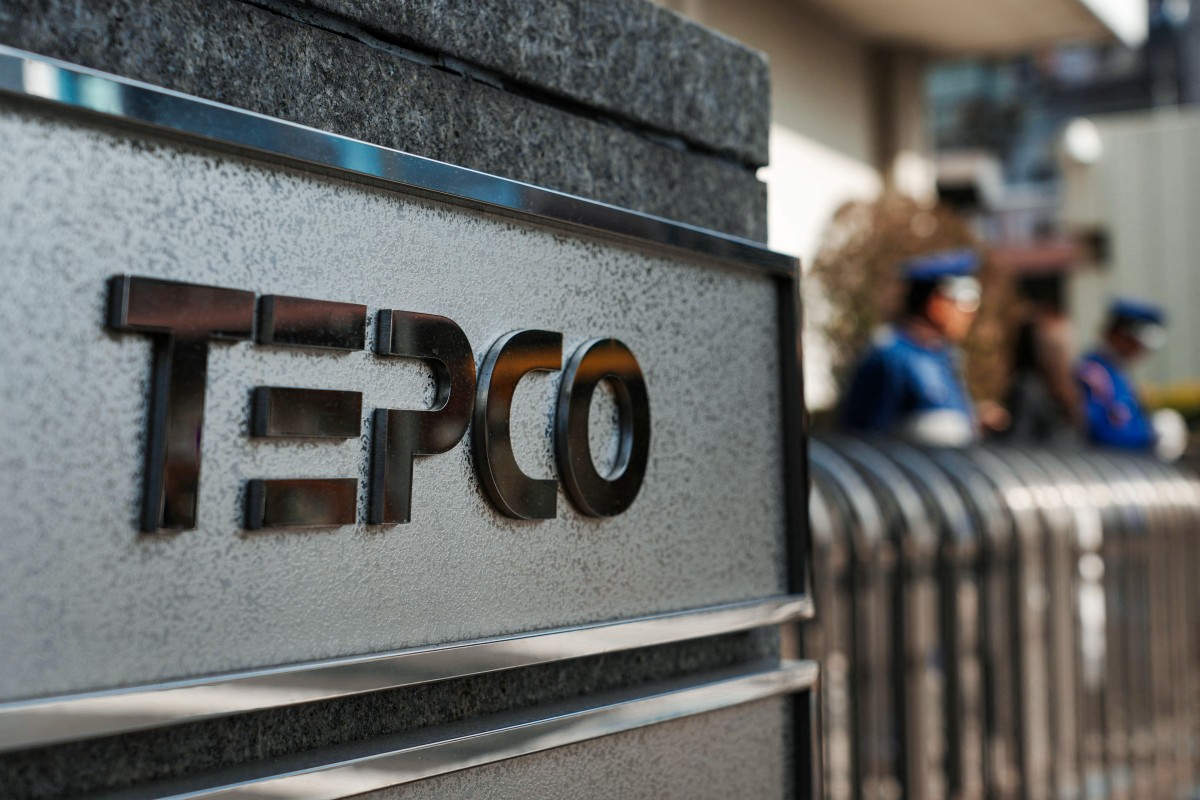
La centrale nucléaire japonaise de Kashiwazaki-Kariwa, la plus grande au monde, a repris ses activités mercredi pour la première fois depuis la catastrophe de Fukushima en 2011, malgré les inquiétudes persistantes d’une partie de la population.
La remise en service a eu lieu à 19h02 heure locale (10h02 GMT), a indiqué à l’AFP Tatsuya Matoba, porte-parole de la compagnie Tokyo Electric Power (Tepco).
Le gouverneur de la préfecture de Niigata, où se situe la centrale, avait donné son feu vert à la reprise le mois dernier, en dépit d’une opinion publique divisée. Selon une enquête menée en septembre par la préfecture elle-même, 60 % des habitants se déclaraient opposés au redémarrage, contre 37 % favorables.
Mardi, plusieurs dizaines de manifestants ont bravé le froid et la neige pour protester près de l’entrée du site, sur les rives de la mer du Japon.
« L’électricité de Tokyo est produite à Kashiwazaki. Pourquoi seuls les habitants d’ici devraient-ils être exposés au danger ? Cela n’a aucun sens », a déclaré à l’AFP Yumiko Abe, une riveraine de 73 ans.
La centrale de Kashiwazaki-Kariwa avait été mise à l’arrêt lorsque le Japon a fermé l’ensemble de ses réacteurs nucléaires à la suite du triple désastre de mars 2011 — un séisme, un tsunami et un accident nucléaire — survenu à Fukushima.
International
Markets rise as Trump halts Europe tariffs and floats Greenland agreement framework
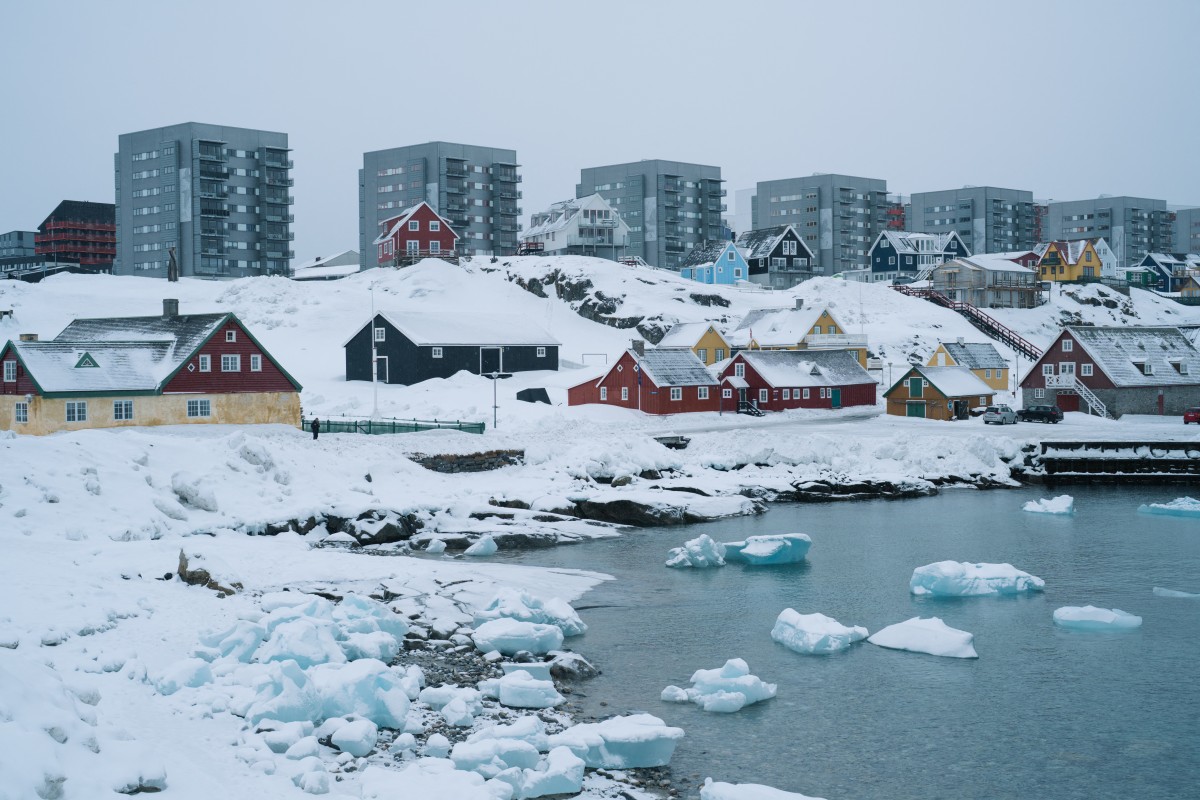
U.S. President Donald Trump on Wednesday lifted his threat to impose new tariffs on several European countries and said he had outlined the framework of a future agreement on Greenland during a meeting in Davos with NATO Secretary General Mark Rutte.
“Based on this understanding, I will not impose the tariffs that were scheduled to take effect on February 1,” Trump wrote on his social media platform Truth Social, without providing details about the proposed “framework.”
The announcement boosted financial markets. Wall Street, which had been trading slightly higher, extended its gains following Trump’s message, while the U.S. dollar strengthened against the euro.
Trump has repeatedly insisted that Greenland, rich in mineral resources, is ‘vital’ to the security of the United States and NATO, particularly as Arctic ice melts and global powers compete for strategic advantage in the region amid rising tensions with China and Russia.
Last week, the U.S. president threatened to impose tariffs of up to 25% on eight European countries for supporting Denmark and sending a military exploratory mission to Greenland. All of the targeted countries are NATO members, including the United Kingdom, Germany, and France, Europe’s largest economies.
Trump said on Wednesday that additional discussions are underway regarding the “Golden Dome” missile defense system, specifically in connection with Greenland.
He assigned Vice President JD Vance, Secretary of State Marco Rubio, and special envoy Steve Witkoff to lead the negotiations.
Hours before his post, Trump ruled out the use of force to seize Greenland for the first time, but demanded “immediate negotiations” for its acquisition, reiterating his view that only the United States can guarantee the security of the Arctic island.
International
Venezuela’s interim president predicts 37% increase in revenues for 2026
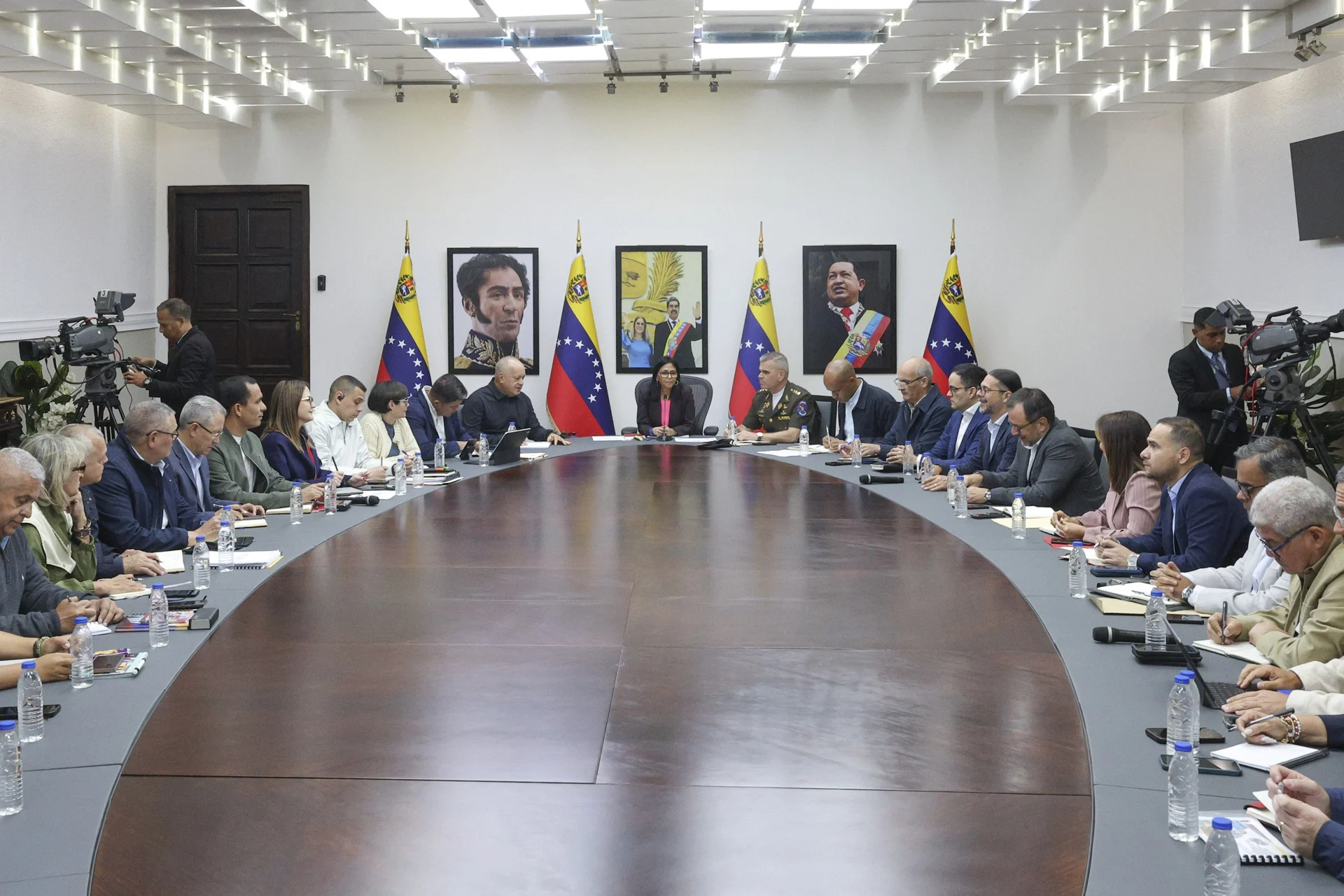
Venezuela’s interim president, Delcy Rodríguez, said Wednesday that the country’s revenues are expected to increase by about 37% in 2026, in a statement made during a session of the Federal Government Council at the Miraflores Presidential Palace in Caracas.
Rodríguez said the projected rise in foreign currency income comes as agreements on Venezuelan oil sales with the United States are being implemented, including deals in which Washington will trade Venezuelan crude and manage the proceeds before transferring funds to Caracas.
“This year, revenues expressed in foreign currency will increase by 37%,” Rodríguez declared, according to EFE. She noted that the increase will also benefit regional governments and local authorities. “You will have more resources for your management, which I know you need,” she added.
Rodríguez said the distribution formula for revenues will remain the same as in 2025: 53% for communes, 29% for state governments, 15% for municipalities, and 3% for institutional strengthening. She also said the government would intervene to “correct imbalances” in how funds are allocated, particularly among some municipal and regional authorities.
The announcement follows reporting that Venezuela received at least $300 million from oil revenues tied to a U.S.–Venezuela deal that could involve up to 50 million barrels of crude. Washington officials have said the interim government met U.S. requirements under the agreement.
-

 International3 days ago
International3 days agoDeath toll from southern Spain train crash rises to 40
-

 Central America3 days ago
Central America3 days agoGuatemala raises police death toll to nine after gang violence escalates
-
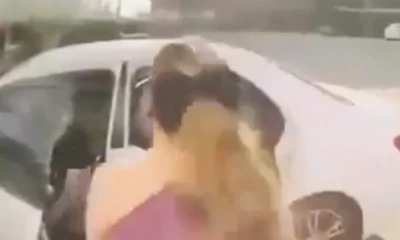
 International16 hours ago
International16 hours agoMexican influencer “La Nicholette” kidnapped in exclusive area of Culiacán
-

 Central America4 days ago
Central America4 days agoGuatemala prison uprisings leave 46 guards held by gangs
-

 International3 days ago
International3 days agoOver 160 christian worshippers kidnapped in Kaduna Church attacks
-
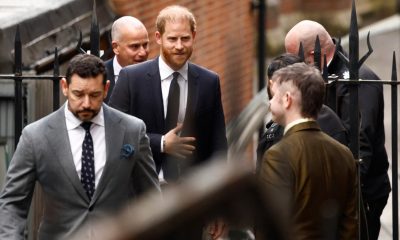
 International2 days ago
International2 days agoDaily Mail publisher insists reports relied on legitimate sources amid privacy trial
-
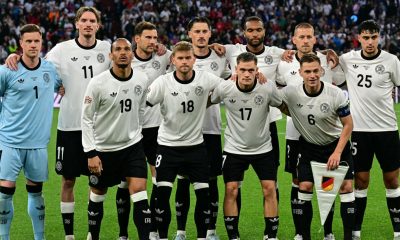
 International2 days ago
International2 days agoGermany says football bodies alone will decide on possible World Cup boycott
-

 International4 days ago
International4 days agoChile declares state of catastrophe as wildfires rage in Ñuble and Biobío
-

 International3 days ago
International3 days agoSpain’s Prime Minister pledges transparency after train crash kills at least 39
-

 International16 hours ago
International16 hours agoTrump announces preliminary NATO agreement on Greenland, suspends tariffs on Europe
-

 International16 hours ago
International16 hours agoMajor winter storm to blanket U.S. and Canada with snow, ice and arctic cold
-
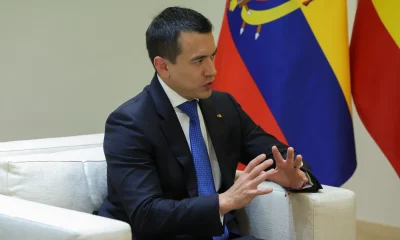
 International15 hours ago
International15 hours agoColombia slams Ecuador’s 30% tariff as ‘economic aggression’
-
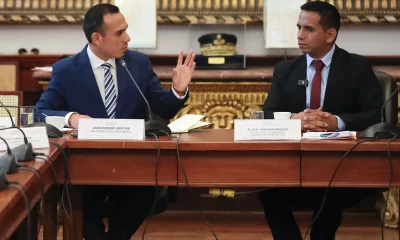
 International15 hours ago
International15 hours agoJosé Jerí claims destabilization attempt after videos of secretive meetings surface
-

 International1 hour ago
International1 hour agoTrump to invite Venezuela’s interim president Delcy Rodríguez to Washington
-

 International1 hour ago
International1 hour agoFour minors killed in deadly clash between FARC dissidents in Colombia’s Amazon
-

 International1 hour ago
International1 hour agoVenezuela’s interim president predicts 37% increase in revenues for 2026
-

 International1 hour ago
International1 hour agoMarkets rise as Trump halts Europe tariffs and floats Greenland agreement framework
-

 Central America1 hour ago
Central America1 hour agoMazatenango Carnival cancelled amid State of Siege in Guatemala
-

 International1 hour ago
International1 hour agoJapan reopens Kashiwazaki-Kariwa Plant despite public concerns

























